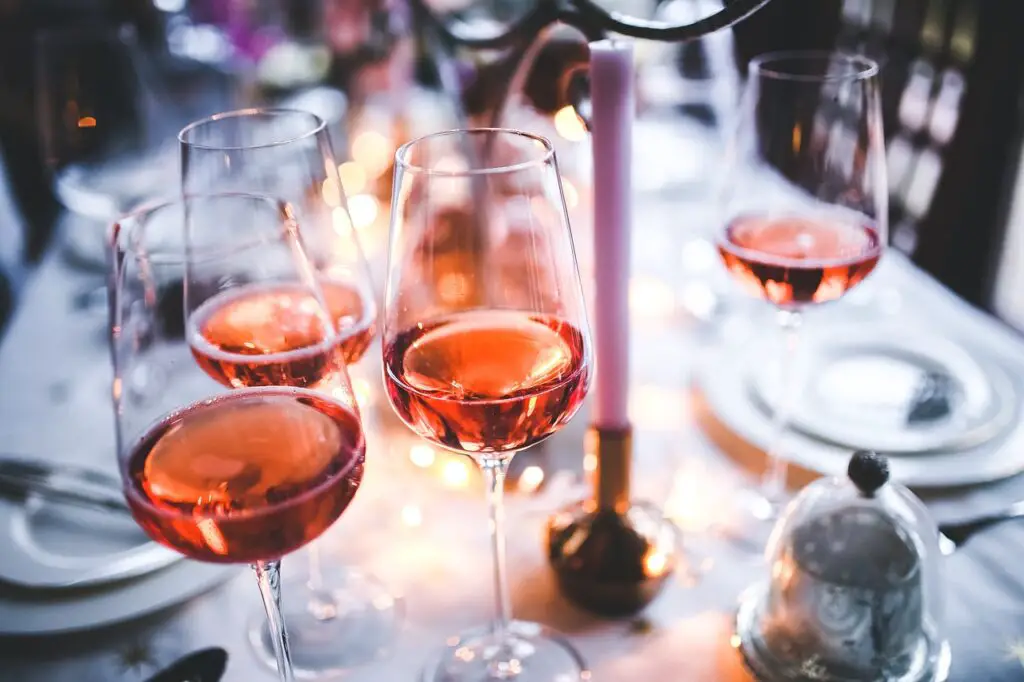Wine, with its rich history, intricate flavors, and diverse styles, is more than just a beverage; it’s an experience. Many people aspire to enjoy and understand wine, not just for the taste but also for the culture and knowledge that come with it. Acquiring a taste for wine can be a delightful journey, one that opens up a new realm of sensory experiences and social opportunities. Here’s how beginners can embark on this flavorful voyage.
Start with the Basics
Understand the Varieties
Begin your wine journey by familiarizing yourself with the basic types of wine: red, white, rosé, sparkling, and dessert wines. Each category offers a unique flavor profile and pairs with different foods. Start by trying wines from each category to understand the broad spectrum of flavors.
Learn to Read Labels
Wine labels provide valuable information about the wine’s origin, grape variety, and vintage. Understanding these details can help you make informed choices and discover what you like.
Develop Your Palate
Begin with Sweeter, Lighter Wines
If you’re new to wine, start with sweeter or lighter wines. These are often more approachable and less overwhelming. White wines like Riesling or Moscato can be a good starting point, as they tend to be sweeter and less acidic.
Progress to More Complex Wines
As you become more comfortable, gradually introduce your palate to more complex wines. Try different varieties of reds, such as Pinot Noir or Merlot, which are known for their depth and richness without being too heavy.
Engage Your Senses
Look, Swirl, Smell, Taste
Wine tasting is a sensory experience. Start by observing the wine’s color and consistency.
Swirl the wine gently to release its aromas. Smell the wine before taking a sip to identify its bouquet. When tasting, let the wine linger in your mouth to appreciate its full range of flavors.
Keep a Wine Journal
Documenting your wine tasting experiences can be incredibly valuable. Note the names, types, flavors, and your overall impressions of the wines you try. Over time, this will help you identify your preferences and patterns in your taste.
Expand Your Knowledge
Attend Wine Tastings and Tours
Wine tastings and vineyard tours can offer profound insights into wine production and help you develop your palate. These experiences allow you to compare different wines side by side and learn directly from experts.
Join a Wine Club
Becoming a member of a wine club can expose you to a wide variety of wines you might not otherwise encounter. It’s also a great way to learn about wine in a community of like-minded enthusiasts.
Pairing Wine with Food
Understanding how to pair wine with food can enhance both the wine and the meal. Certain flavors in food can bring out the nuances in wine, and vice versa. Experiment with different pairings to discover combinations that delight your palate.
Practice and Patience
Like any skill, acquiring a taste for wine takes time and practice. Be patient with yourself and keep an open mind. Your preferences may change as you explore more and learn about your own tastes.
Acquiring a taste for wine is a rewarding journey that can enhance your culinary experiences, expand your cultural horizons, and connect you with a community of enthusiasts. By starting with the basics, engaging your senses, expanding your knowledge, and practicing, you’ll develop a deeper appreciation and understanding of this timeless beverage. Cheers to your wine discovery journey!
Embrace Experimentation
The world of wine is vast and varied, making experimentation key to broadening your palate.
Each grape variety, terroir (the natural environment in which a wine is produced), and winemaking technique contributes to a wine’s unique character. Don’t shy away from trying wines from lesser-known regions or producers, as these can offer surprising and delightful discoveries. Remember, part of the joy in exploring wine is encountering unexpected favorites.
Seek Guidance and Share Experiences
Leverage Expert Recommendations
Wine experts and sommeliers dedicate their careers to understanding and appreciating wine.
Don’t hesitate to ask for recommendations when dining out or visiting a wine shop. These professionals can provide suggestions tailored to your current preferences while encouraging you to explore new tastes.
Share with Friends
Wine is inherently social, and sharing it with friends can enhance the experience. Organize wine tasting gatherings or join a wine appreciation group. Sharing your discoveries and discussing them with others can deepen your understanding and appreciation of wine.
Understand the Impact of Aging
Wine is a living product that evolves over time. Some wines are meant to be enjoyed young, while others improve with age. Learning about the aging potential of different wines can add another layer of complexity to your wine appreciation. This knowledge can also guide you in starting your wine collection, allowing you to experience the evolution of flavors that comes with properly aged wines.
Connect with the Wine Community
The wine community is vast, spanning wine enthusiasts, critics, makers, and scholars.
Engaging with this community through forums, social media, and wine events can provide valuable insights and enrich your wine journey. These connections not only offer learning opportunities but also open doors to experiences like private tastings, exclusive releases, and wine-focused travel.
Cultivate Mindfulness and Appreciation
Enjoying wine fully involves more than just taste; it’s about mindfulness and appreciation.
Consider the craftsmanship, tradition, and innovation behind each bottle. Reflect on the journey from vine to glass—a process that involves the dedication of countless individuals and the influence of nature’s unpredictable elements. This perspective can transform a simple glass of wine into a more profound experience.
Keep an Open Mind
Your wine preferences will likely evolve as you continue your journey. A wine you didn’t enjoy initially may become a favorite as your palate develops. Similarly, your tastes might change with the seasons, your mood, or the cuisine you’re enjoying. Keeping an open mind allows you to revisit and reassess wines, continually refining your palate and preferences.
Acquiring a taste for wine is an enriching endeavor that combines sensory pleasure with learning and social engagement. By approaching it with curiosity, openness, and a spirit of exploration, you can transform your appreciation of wine into a lifelong journey of discovery.
Remember, the goal is not just to develop a taste for wine but to enjoy the journey of exploring this diverse and fascinating world. Cheers to the endless adventures that await you in the world of wine!
Frequently Asked Questions (FAQs) on Acquiring a Taste for Wine
How long does it take to acquire a taste for wine?
The time it takes to develop a taste for wine can vary widely from person to person. For some, a few tastings will be enough to start appreciating different flavors, while for others, it may take months or even years of exploration. Remember, developing a taste for wine is a journey, not a destination.
Can you really taste the difference between cheap and expensive wines?
Many factors contribute to the cost of wine, including production methods, rarity, and branding. While more expensive wines often offer complexity and aging potential, price is not always a direct indicator of personal enjoyment. Many wine enthusiasts find affordable wines that they love. Over time and with experience, you might start to notice differences in quality and complexity between price points.
Is it necessary to spit out wine during tastings?
Spitting wine during tastings is a common practice, especially among professionals or during events where multiple wines are sampled. It allows you to taste a variety of wines without the effects of alcohol impairing your judgment. However, for casual tastings or when only trying a few wines, it’s perfectly acceptable to swallow the wine.
How do I know which wines I will like?
Discovering which wines you prefer involves trial and error. Start by tasting a wide variety of wines and noting which characteristics you enjoy. Pay attention to the grape varieties, regions, and styles that consistently appeal to you. Over time, you’ll develop a better understanding of your personal preferences.
What’s the best way to learn about wine?
There are many ways to learn about wine, including reading books and articles, attending tastings and courses, and joining wine clubs or groups. Engaging with the wine community, whether in person or online, can also provide valuable insights and recommendations.
Do I need a wine cellar to start collecting wine?
While a wine cellar can provide the ideal conditions for aging wine, it’s not a necessity for starting a collection. Many wine enthusiasts begin by storing bottles in a cool, dark place away from vibrations. There are also wine fridges designed for different budget levels that can maintain consistent temperature and humidity.
How can I improve my wine tasting skills?
Improving your wine tasting skills involves practice and mindfulness. Try to taste wines regularly, paying close attention to their characteristics. Attending guided tastings or workshops can also provide structured learning opportunities. Keeping a tasting journal can help you track your impressions and progress over time.
Is it possible to acquire a taste for wines if I generally don’t like alcoholic beverages?
Yes, it’s possible. Start with lighter, sweeter wines, which can be more approachable for those not accustomed to alcoholic beverages. Gradually, you may find that you develop a taste for more varied and complex wines.
Remember, acquiring a taste for wine is a personal journey that unfolds differently for everyone. The key is to explore, enjoy, and keep an open mind.




